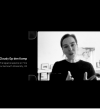Monday, 19 May 2008
Talbot Campus, Poole House
For further information on this project, please view the Copyright Term webpage.
Draft Programme (Martin Kretschmer)
I have asked two colleagues who travel from quite far to make formal presentations:
Christian von Borries, a Berlin based composer, producer and conductor, will start with his ongoing project “Music about music”.
Paul Heald, from the University of Georgia, has done some of the best empirical work in this area. Paul has prepared a review of the exploitation literature, and will also present his new research: “Testing the Over- and Under-Exploitation Hypotheses: Bestselling musical compositions (1913-32) and their use in cinema (1968-2007)”.
All other sessions are in round table format. Tentatively, I have allocated names against sessions, together with references to some material that may be used. Please tell me if you have other ideas.
1. The issue of extension (Martin Kretschmer) International obligations (Berne, Rome, TRIPS), the 1993 EC harmonisation directive, Sonny Bono/Eldred, US bilaterals (Chile, Singapore, Australia)
2. Music about music (Christian von Borries)
3. The record industry’s lobby strategy (Lionel Bently, Stef van Gompel [IViR]) BPI, IFPI, PPL submissions and letters
Materials: PPL submission to Gowers Draft letter by industry to McCreevy
4. Key note: Over- and Under-Exploitation (Paul Heald)
5. Artists’ labour markets and earnings (Ruth Towse, Philip Hardwick, Martin Kretschmer) The relationship of copyright and contract
Materials: Towse: Creativity, Incentive and Reward (2001); Kretschmer & Hardwick: Authors’ Earnings; Swedish data on royalties to dead composers (1995: 2.4%; 2006: 14.1% [Thanks to Roger Wallis/SKAP])
6. Prices (Mark Rogers, Paul Heald, Rufus Pollock)
Materials: Liebowitz 2006 [IFPI commission]; PriceWaterhouseCoopers 2006 [BPI commission]; Cambridge Study for Gowers; Heald, Bestselling Books paper (2006)
7. Access to recorded music (Nick Cook, Lee Marshall, David Sanjek, Charlotte Waelde) Orphans works, reissues, historical recordings, bootlegs
Materials: Tim Brooks, Survey of Reissues of U.S. Recordings (2005); Marshall, Bootlegging, Sage (2005)
8. The trade argument
We need a convincing response to the trade argument. It is hard to understand why harmonization in the area of cultural and innovation policy can be an aim in itself. The argument is often formulated ambiguously as both a competitive advantage and a balance of trade issue (see original mail below: point four). What kind of evidence are we looking for: Is the “fair use economy” concept useful? See Fair Use Economy Represents One-Sixth of U.S. GDP
If any of you can prepare a review of empirical evidence and approaches in any of the areas sketched (in particular on trade), feel free to volunteer. Otherwise, a very brief introduction to the discussion will suffice. We will have further material available on the day.
Invitation mail of 28 April 2008
The Proposed Copyright Term Extension for Sound Recordings A joint academic statement on the evidence Bournemouth, 19 May 2008
Dear colleagues,
Following my letter to the Financial Times of 18 February 2008 responding to Commissioner McCreevy’s press release (Copyright extension will benefit few)
you expressed an interest in taking this further, to an authoritative independent statement on the evidence. I hope you still have earmarked 19-20 May in your calendar for the meeting at Bournemouth.
The result of the meeting will be an open letter to the European Commission.
As things stand, the letter will be authored by several key UK research institutes, including:
AHRC Centre Intellectual Property & Technology Law, Edinburgh (Hector MacQueen, Charlotte Waelde) AHRC Centre for the History and Analysis of Recorded Music, Royal Holloway, London (Nicholas Cook) Centre for IP and Information Law, Cambridge (Lionel Bently, Rufus Pollock) Centre for IP Policy & Management, Bournemouth (Martin Kretschmer, Paul Heald, Ruth Towse)
In addition, I have invited a number of individual academics from various disciplinary, industry and jurisdictional perspectives who will contribute to the examination of the evidence, and also become first signatories of the letter (if they so wish).
The meeting in Bournemouth will start on Monday 19 May at about 12:00 with five working sessions, assessing the evidence on each of the main arguments on term extension (see below). Draft sections of the open letter will be available.
We expect to close at about 18:00. Afterwards, there will be dinner, and I can organise a hotel for colleagues from further away.
On Tuesday morning, we shall discuss possible empirical research projects in the light of Monday’s discussion. Please indicate if you want to be part of this too. The programme will end about lunch time.
The Centre for Intellectual Property Policy & Management at Bournemouth University can make a contribution to your travel and overnight costs if you do not have access to your own source of funding.
—-
The arguments in favour of copyright extension are generally presented in an opaque manner.
Typically, there is a statement on the creative economy:
“We firmly believe in an Internet where property rights are respected, and creativity is fairly rewarded. This will grow our digital economy, which is in the interest of all of us.” (Taylor, BPI, Billboard, 4 April 2008)
To this, a reference to the historic discrimination against artists will be added. In particular, ageing performers are evoked: “I am talking about the thousands of anonymous session musicians who contributed to sound recordings in the late fifties and sixties. They will no longer get airplay royalties from their recordings. But these royalties are often their sole pension.” (Commissioner Charlie McCreevy, DG Internal Market press release, IP/08/240, 14 February 2008)
While we all agree that this language is a cover for rent seeking by the Record Industry (the main beneficiary of extension), the arguments appear to seduce even economically literate politicians.
An independent review of the evidence on copyright term extension for sound recordings needs to examine at least five alleged effects:
1. The Artists’ Earnings Effect
Will artists earn more as a result of extension?
“[Extension is] good for musicians who when they reach the ages of sixty nine, seventy, seventy five will not be deprived of income, income that many rely on… This will bring them into line with other artists and creators, and recognise that their contribution to these recordings was something special and unique, and they will be rewarded in their old age for those fantastic recordings they made in their youth.” (Peter Wishart, Member of Scottish Parliament: BBC News 24, 14 February 2008)
2. The Exploitation Effect
Will the supply of recorded music change as a result of extension?
“It is feared that an extended term of protection would only diminish the choice of music on the market by enforcing the flow of revenues from a few best-selling recordings, while at the same time not providing any real new incentives for creation of new recordings or motivating new investment”. (2004 Commission Staff Working Paper “on the review of the EC legal framework in the field of copyright and related rights” (SEC(2004) 995; p. 11) “[A]n absence of copyright protection for intangible works may lead to inefficiencies because … of impaired incentives to invest in maintaining and exploiting these works.” (Landes & Posner, “Indefinetely renewable copyright”, Chicago Law Review 2003, 70, p. 475)
3. The Consumer Price Effect
Will the price of recorded music change as a result of extension?
“For the large majority of sound recordings the producers are likely to either recoup their investment within the first years, if not months, following their release, or never. If a recording has not recouped its investment after 50 years, it is very questionable that it ever will. On the basis of this finding it can be assumed that a term of protection of 50 years offers phonogram producers more than enough time to recoup their investment. As the rights expire, recordings falling into the public domain will become subject to competition and falling prices, which will lead to a loss of income for the former right holders.” (IViR Report, The Recasting of Copyright & Related Rights for the Knowledge Economy, 2006, p. 6)
“The Commissioner stressed that the proposal should not have a negative impact on consumer prices. ‘Empirical studies on the price effects of copyright protection show that the price of sound recordings that are out of copyright is not necessarily lower than that of sound recordings in copyright.’” (McCreevy press release: 14 February 2008)
4. The Trade Effect
Will the balance of trade be affected by extension?
“If Europe is going to achieve its goal of becoming a leading knowledge-based economy, it has to put its creative sector on a level playing field with other parts of the world. This is essential to ensure a thriving European musical culture and a competitive music business that will drive growth in the creative economy. The current disparities in term of protection, both within the European Union and between the EU and other music markets, have to be fixed if the European music sector is going to compete on an equal basis.” (extract from letter to McCreevy, circulated in early 2008 for signature by performers, music publishers, independent and major record producers, entertainment retailers and collecting societies).
5. The Transformative Use Effect
Will cultural activities be affected by extension?
“By the end of the 1990s nearly all major publishing and recording companies had followed the lead of EMI and employed staff ‘whose sole job was to listen to new releases that may have contained samples of its property’ (McLeod 2001: 89). Clearing samples has become increasingly expensive and administratively time-consuming, which, in turn, had had a variety of effects on how sample-based music like hiphop is produced.” (Frith & Marshall, “Making sense of copyright”, Music and Copyright, Edinburgh UP 2004, p.3)
Various theories (about incentives, about property rights, about technology) may hypothesize these alleged effects. The Bournemouth meeting will not discuss the theoretical framework of copyright. It aims to establish and communicate what we empirically know already, and what we need to do to know more.





